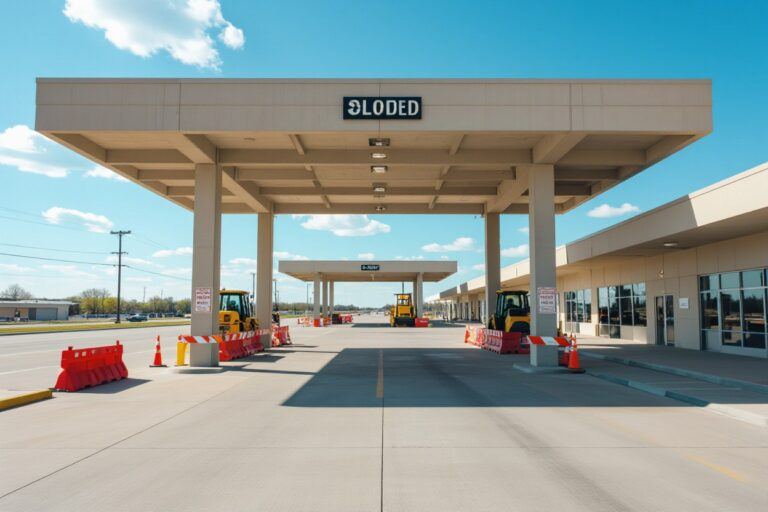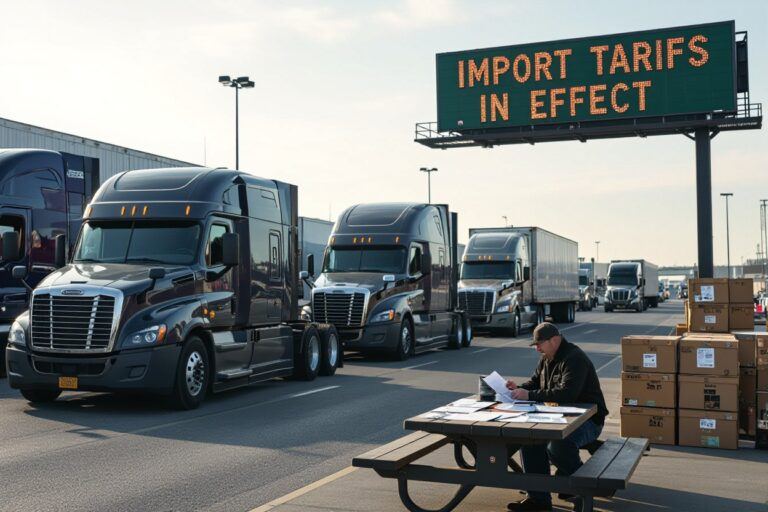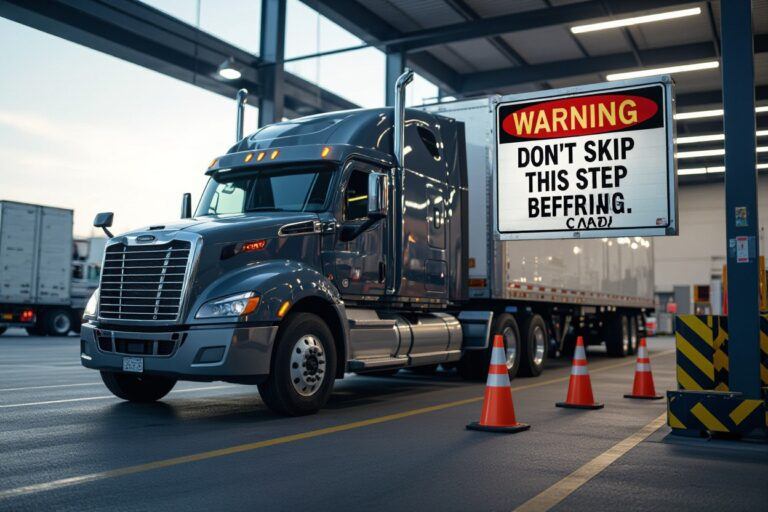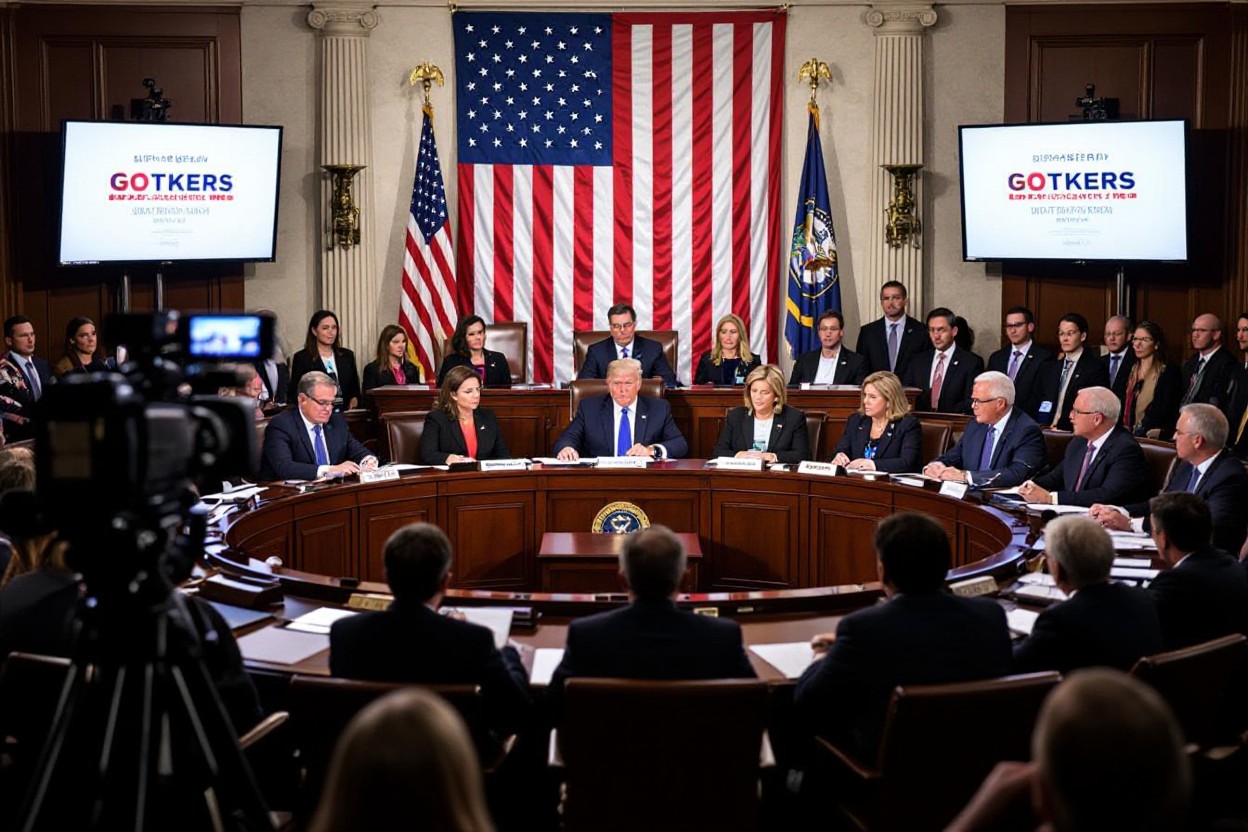
Amidst significant legislative change, you need to understand how the trucking industry is responding to the House passing Trump’s One Big Beautiful Bill Act. This comprehensive bill, impacting taxes and workforce rules, carries both opportunities and challenges for your business and the drivers you rely on. By exploring varied industry perspectives, you’ll gain insight into what this means for your future operations, equipment investments, and driver workforce. Stay informed to navigate the evolving landscape shaped by this landmark legislation.
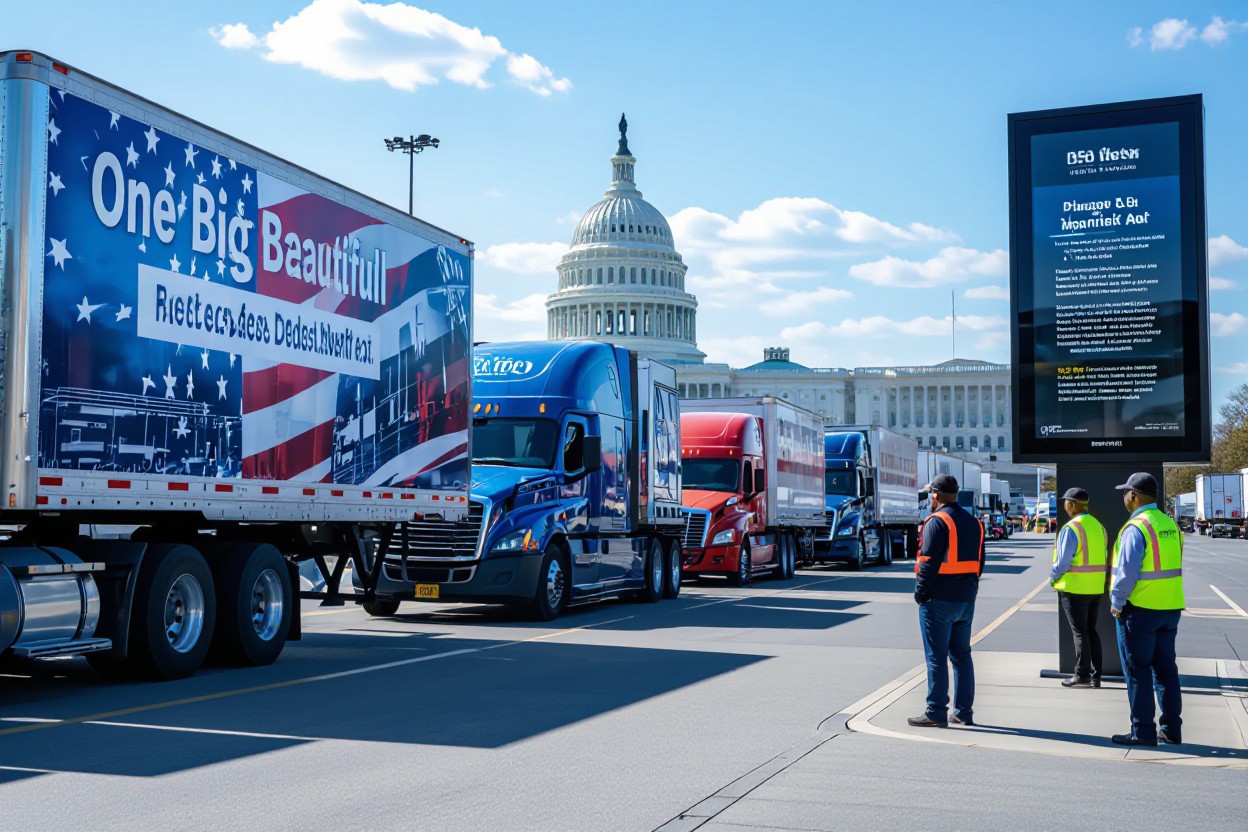
Legislative Background and Key Provisions
The One Big Beautiful Bill Act recently passed the House with a narrow 218-214 vote, now awaiting the president’s signature. This expansive 800+ page legislation addresses key areas in the trucking industry, including long-term tax certainty and workforce development resources. By focusing on tax reform, it aims to support motor carriers, many of which are small businesses with ten trucks or fewer, helping you plan for future growth, job creation, and equipment upgrades. However, some provisions, like overtime pay exemptions, remain contentious and are driving calls for further reform.
Immediate Impacts on the Trucking Workforce
You will see that the legislation offers significant tax relief, allowing trucking companies to reinvest in their operations and workforce. While this provides economic stability, truck drivers still face challenges—especially regarding overtime pay eligibility. Due to an exemption in the Fair Labor Standards Act, many truckers don’t receive overtime, causing income disparities and safety concerns. This ongoing issue highlights a gap where additional legislation, such as the bipartisan GOT Truckers Act, is needed to ensure fair compensation for your extra hours on the road.
In detail, although the bill provides tax certainty which can enable your company to upgrade equipment and create jobs, you as a driver might notice continued frustration surrounding overtime pay. Under the decades-old Fair Labor Standards Act, truckers like you are excluded from guaranteed time-and-a-half pay if work extends beyond 40 hours weekly. This exclusion often results in lost wages during delays caused by traffic or loading dock hold-ups. The Owner-Operator Independent Drivers Association stresses that without correcting this longstanding oversight, your time is undervalued, and road safety can suffer, as fatigued drivers remain on the job longer than they should.
American Trucking Associations: A Victory for Tax Relief
The American Trucking Associations (ATA) applauds the House passage of the One Big Beautiful Bill Act, highlighting it as a significant win for tax relief in your industry. This legislation provides long-term tax certainty and flexible resources for workforce development, helping ensure your supply chains keep America’s economy moving. The ATA emphasizes that motor carriers, mostly small businesses, can now better plan for the future, provide good-paying jobs, and upgrade equipment thanks to this tax reform. This bill supports the 8.5 million Americans working throughout trucking by averting the largest tax increase in U.S. history.
Owner-Operator Independent Drivers Association: Concerns Over Overtime Exemptions
The Owner-Operator Independent Drivers Association (OOIDA) voices concern that the One Big Beautiful Bill Act fails to benefit you as a trucker regarding overtime pay. Truckers remain excluded from overtime protections under the Fair Labor Standards Act of 1938, meaning you’re not guaranteed time-and-a-half after 40 hours like other blue-collar workers. OOIDA urges Congress to pass the bipartisan GOT Truckers Act to fix this outdated exemption and grant you the overtime pay and tax relief that other workers receive.
The overtime exemption under the Fair Labor Standards Act puts you at a disadvantage compared to nearly all other blue-collar workers. Since many truckers are paid by mileage, you often don’t receive fair compensation for hours spent waiting in traffic, bad weather, or at loading docks. This system not only undervalues your time but also poses safety risks; delays increase accident rates by 6.2%, leading to over 6,500 additional crashes annually. OOIDA argues that the bipartisan GOT Truckers Act (H.R. 1962 / S. 893) would level the playing field, improving pay fairness and road safety for you and your fellow drivers.
Understanding the Overtime Exemption
You should be aware that under the Fair Labor Standards Act of 1938, truck drivers are exempt from guaranteed overtime pay. Unlike most blue-collar workers, you are not entitled to time-and-a-half pay for hours worked beyond 40 per week, even if delays like traffic or loading docks extend your workday. This exemption means your time on the road or waiting does not always translate fairly into earnings, which is a significant issue many in the trucking community face.
Implications for Truckers’ Earnings and Safety
The overtime exemption directly impacts your earnings and safety by allowing extended work hours without additional pay. Since many truckers get paid only for miles driven, you might not be compensated fairly for the long hours spent waiting. This situation also increases safety risks, as studies show a 15-minute delay at loading docks can raise accident rates by 6.2%, leading to thousands of additional crashes annually.
When your time on the road isn’t adequately compensated, it puts financial strain on you and pressures you to drive longer hours. This not only affects your income but also heightens fatigue, contributing to less safe conditions on the road. The Owner-Operator Independent Drivers Association highlights that this outdated rule leads to increased turnover and less experienced drivers, further impacting road safety. By understanding these effects, you can better advocate for legislation like the bipartisan GOT Truckers Act, which aims to extend overtime protections to truck drivers, ensuring fair pay and safer highways for you and your fellow drivers.
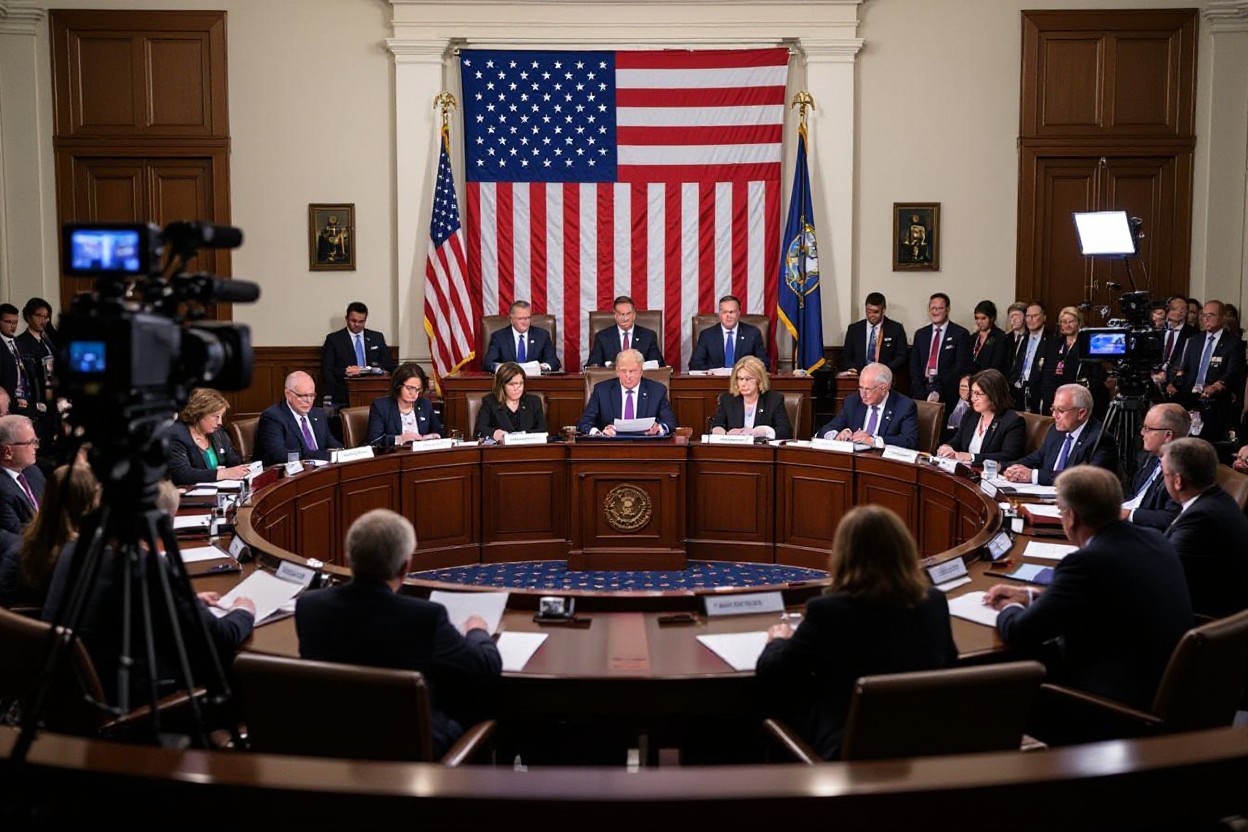
Proposed Revisions to Overtime Regulations
The One Big Beautiful Bill Act highlights the need to revisit overtime regulations, especially for truck drivers currently excluded under the Fair Labor Standards Act of 1938. You should know that truckers do not receive guaranteed overtime pay despite often working beyond 40 hours a week due to factors like traffic and loading delays. The bipartisan GOT Truckers Act aims to fix this by extending overtime protections and tax relief to truckers, leveling the playing field and enhancing both fairness and safety on the roads.
Potential Benefits for the Trucking Industry
As a trucking professional, you stand to gain from the tax certainty and flexible workforce development resources offered by the new legislation. The bill supports over 8.5 million workers like you by enabling motor carriers—mostly small businesses operating ten trucks or fewer—to invest in equipment upgrades and provide quality jobs. This stability helps you plan confidently for the future and keeps the supply chain moving efficiently.
Beyond immediate tax relief, the One Big Beautiful Bill Act promotes long-term growth by ensuring your industry can adapt and thrive. With more predictable financial conditions, your company can focus on upgrading equipment and expanding job opportunities. This not only strengthens your operations but also plays a vital role in sustaining America’s economy, where trucking is recognized as the vital backbone of commerce.
The Trucking Industry as an Economic Backbone
You rely on the trucking industry every day, as it supports 8.5 million American workers who keep goods moving and businesses thriving. With the passage of the One Big Beautiful Bill Act, the industry gains long-term tax certainty and flexible resources for workforce development, enabling small motor carriers—many with ten trucks or fewer—to plan their futures, provide good-paying jobs, and upgrade equipment. This legislation helps ensure your economy and supply chains stay strong by investing in the backbone that moves the nation’s commerce.
Consequences of Legislative Changes on Supply Chains
The new legislation impacts your supply chains by reducing uncertainty and providing tax relief that supports trucking companies’ growth. This increase in stability helps prevent disruptions and promotes continual investment in the equipment and workforce you depend on. However, the bill does not address overtime pay protections for truckers, which may influence driver retention and safety, factors that are directly connected to the efficiency of your supply chains.
Delays caused by insufficient driver protections can lead to costly hold-ups at loading docks, raising safety risks and increasing accident rates by 6.2% for every 15-minute delay. While the One Big Beautiful Bill Act strengthens financial frameworks, addressing exemptions in the Fair Labor Standards Act remains vital to improving driver conditions and maintaining the consistent flow of goods you count on. The bipartisan GOT Truckers Act aims to correct these issues by granting truckers overtime pay eligibility, which could further stabilize your supply chains in the future.
Final Words
Summing up, the passage of Trump’s One Big Beautiful Bill Act marks a significant moment for the trucking industry, offering tax relief and resources that can help your business plan and grow with greater certainty. While many applaud the benefits to small motor carriers and workforce development, ongoing concerns remain about truckers’ exclusion from overtime protections under current labor laws. As you navigate these changes, staying informed about both the advantages and challenges will empower you to make the best decisions for your operations and advocacy within the industry.
